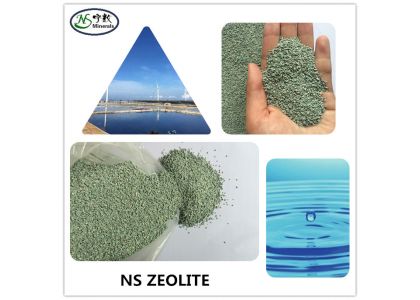
Water scarcity and pollution are global concerns that have led to the development of innovative water treatment technologies. Zeolite water treatment media is one such advancement that has gained prominence in recent years due to its exceptional adsorption and ion-exchange properties.
What Is Zeolite?
Zeolites are naturally occurring minerals composed of a framework of silica and alumina tetrahedra. They have a unique crystalline structure that provides them with a high surface area and a network of interconnected pores. These properties make zeolites ideal for various applications, including water treatment.
Applications of Zeolite in Water and Wastewater Treatment
Ion Exchange: Zeolites have a strong affinity for certain ions, such as ammonium, heavy metals, and radioactive materials. In ion exchange processes, zeolite beads or granules are used to replace harmful ions in water with less harmful or non-toxic ions. This is particularly useful in the removal of pollutants from industrial wastewater and the softening of hard water.
Adsorption: Zeolites are highly effective adsorbents for organic compounds, volatile organic compounds (VOCs), and odor-causing substances. They can be employed in water treatment facilities to capture and remove impurities, improving water quality and odor.
Cationic Resin Regeneration: In municipal and industrial water treatment, cationic resins are used to remove cations like calcium and magnesium ions that cause water hardness. Zeolites can regenerate these resins, extending their lifespan and reducing the need for replacement.
Ammonia Removal: Ammonia is a common pollutant in wastewater and can be harmful to aquatic life. Zeolites effectively adsorb ammonia, making them valuable in treating both municipal and industrial wastewater containing high ammonia levels.
Heavy Metal Removal: Zeolites can selectively remove heavy metals such as lead, cadmium, and copper from contaminated water. This capability is essential in safeguarding public health and protecting the environment.
Nutrient Recovery: In wastewater treatment, zeolites can be used to capture nutrients like phosphorus and nitrogen, which can then be reclaimed and used as fertilizers, reducing the environmental impact of nutrient discharge.
Desalination: Zeolite membranes have shown promise in desalination processes. These membranes can separate freshwater from seawater or brackish water efficiently, potentially addressing water scarcity issues in arid regions.
Benefits of Zeolite Water Treatment Media
High Adsorption Capacity: Zeolites have a large surface area and a well-defined pore structure, allowing them to adsorb a wide range of contaminants effectively.
Selective Ion Exchange: Zeolites can be tailored to target specific ions, ensuring precise removal of pollutants without affecting essential minerals in the water.
Regenerability: Zeolites can be regenerated and reused, reducing operational costs and minimizing waste.
Environmentally Friendly: The use of zeolites in water treatment often results in a reduced need for chemical additives, promoting environmentally sustainable practices.
Improved Water Quality: Zeolite treatment leads to cleaner, safer, and better-tasting water, which is crucial for both industrial and municipal applications.
Zeolite water treatment media has emerged as a versatile and efficient solution for addressing water and wastewater treatment challenges. Its ability to selectively remove contaminants, adsorb pollutants, and enhance water quality makes it a valuable tool for industries and communities striving to protect their water resources. As research and development continue, zeolite-based technologies are likely to play an increasingly prominent role in ensuring access to clean and safe water worldwide.
